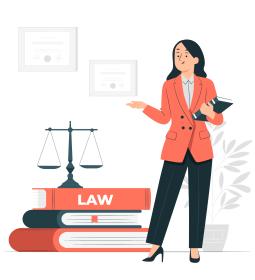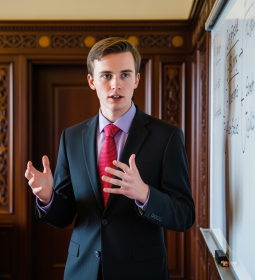Interest in South Korea is growing exponentially: here you can say thank you, for example, to the K-pop culture that teenagers are so fond of — and then they want to study here! Let's tell you everything about Korean education — at least everything you need to know first.
Educational system in Korea
The first schools in Korea appeared back in 372: they studied the works of Confucius and honed their martial arts skills. A little later, private schools were opened for boys from the upper classes.
In 682, the first university was opened, where students studied mathematics, anatomy, physics and astronomy. Yes, only children from families of the upper classes could enter there, but in the XVI century, everything changed when schools and universities began to open en masse.
Unfortunately, during the Japanese occupation, children did not go to school, and it was generally forbidden to study in Korean, so a large number of people of those times remained illiterate. But after the liberation of South Korea, education became worth its weight in gold, because without it it was impossible to get a job.
Studying at school
The country began to reorganize the entire education system.
- Preschool educational institutions were opened: Koreans believed that the earlier a child began to study, the more successful and hardworking he would be in adulthood, so children were sent to school at the age of three (!). Parents invest a lot of money and effort to ensure that their child receives the best education: for example, already in preschool institutions, they learn English and study creative "specialties".
- When a child turns seven, he goes to elementary school. In Korea there are three levels of education: elementary, middle and high school. Young schoolchildren are taught the Korean language, mathematics and science, with a great emphasis on the country's history and traditions. Elementary school lasts six years.
- In secondary school, boys and girls study in different buildings - these are the traditions. In Korea, it does not happen that one class studies together in all schools, so children need to get used to each other every time (this causes discomfort for many, but sociable children even like it). By the way, teachers are also often transferred to different schools! He should not work in one educational institution for a long time, so that he does not have favorites there. Teachers emphasize English and other subjects that will help children get into university. Schoolchildren come to school early in the morning and leave late in the evening - lessons last 14 hours. Yes, with such a schedule, it is difficult to do what you like, go to creative circles, meet friends... Those who do not want to go to university can go to college or get a working specialty.
- High school is not compulsory in Korea, however, most students stay. The study lasts three years, and these are the hardest in the life of young Koreans: teenagers spend all day preparing for exams, going to additional classes and sitting in libraries until nightfall, studying additional literature in order to successfully pass the exam ( suneun).
Suneun is the most terrible event in the life of every student. This is a final exam like the Unified State Exam, only schoolchildren take all subjects on the same day. It's hard to even imagine this! It lasts from early morning to late evening, under the supervision of video cameras and strict observers. You have to wait 20 days for the results of the exam, and the correct answers are announced on TV: only then can students assume what they wrote correctly and where they made a mistake.
Along with the results, unfortunately, comes a wave of teenage suicides: all because of the stress accumulated over all the years of study, plus there is uncertainty about the future. Many who did not pass the exam cannot get used to the idea that they will not be able to enter universities and provide for their families in the future.
Rules within schools
The appearance of students is strictly monitored. Of course, each school has its own uniform with a clearly verified design that reflects the values of the educational institution, and a corporate emblem. You can't come in casual clothes and without a change: everyone has several pairs of shoes that students change their shoes when they come to school. In addition, you cannot apply makeup, dye your hair in bright colors, wear jewelry and have nails with a daring manicure.
School holidays in Korea last only one month. True, there are schools where the director is less strict and sets the dates of rest himself, so there happy children can rest for a week or two longer.
Higher Education in Korea
Let's talk about it in more detail. You need to study for a bachelor's degree for 4 years, except for some professions where training lasts 6 years (architects, doctors). Next comes master's and doctoral studies.
Education is conducted in two languages - Korean and English, it all depends on the specialty. Therefore, upon admission, you need to pass the TOPIC test for knowledge of Korean , and the higher the score, the more universities will invite you to study. You can improve your level of Korean at university courses: their cost is different, and it lasts a little less than a year.
Keep in mind that such courses will not teach you to speak Korean from scratch, at least basic training should be there!
Studying at a university in Korea is just as difficult as studying in Korean schools. Classes last from Monday to Fridays, in addition to theoretical classes, students have a lot of practical work.
How can a foreigner enter a university in Korea?
As we wrote above, you need to learn and pass Korean – this is the first thing. It is quite easy for a foreign student to enter and receive a scholarship/grant, and the allowance covers many expenses: flights home, payment for courses for additional classes, and the like. But it is difficult to "keep" the scholarship: you need to study for high scores, know languages at an excellent level C1 and higher.
There are several types of payments to prospective students:
- From the government: it is given to everyone, the amount of payments per month is about 68 thousand rubles;
- From the organization. Once the company has paid for your studies, you have to work for it for a period of time, like targeted training. Very convenient for those who study in creative specialties. They pay from 41 to 47 thousand rubles;
- Individual: universities themselves help outstanding students or help students in need.
There are different programs for international students: scholarships for outstanding applicants, for language studies, and so on.
How much is a student's life worth in Korea?
First, you need to draw up all the documents necessary for your studies and buy tickets. Some scholarships and programs cover the costs associated with applying to a university. On average, a visa costs 11 thousand rubles, then you will need to extend it (for 2300 rubles).
Students do not pay taxes to the state - only working people do this. Although we note that students do not have any privileges in the form of discounts and free tickets.
In order to receive a scholarship and pay here and there, you, of course, will need to apply for a bank card. This can be done at any branch of the bank, there is even a separate type of card for students, where there is no service fee. In the current situation, it is quite difficult to transfer money to a Korean account, so you need to clarify in advance which offline or online bank accepts transfers to Korean cards. Plus, you will need a bank account in order to apply for a SIM card and the Internet: the monthly fee will be from 4 to 6 thousand rubles - it all depends on the tariffs.
From 2021, all international students do not need to take out insurance, this is done automatically when entering the country. You pay about 4 thousand rubles a month for it, it covers 80% of all costs for medical procedures. Even if you did not have time to take out insurance, do not worry! Going to the doctor is not very expensive (from 600 rubles).
Next, you need to look for housing. Students have several options:
- Hostel. Usually there is a university where two people live in a room. It costs from 18 to 28 thousand rubles;
- Rented apartment: can be found on Korean sites, prices depend on the distance from the center, the number of rooms, amenities, and more. Price per month from 18 thousand rubles;
- Kosivon (Koshiwon): This is a small studio apartment in which one person lives. For a month, you will pay from 17 to 24 thousand rubles for rent;
- Hasukchip. It is similar to a boarding house: the owner lives in the house, everyone has their own room with a shared toilet and bathroom. Here they serve breakfasts and dinners.
You can rent a house in Korea in any corner of the city and in the suburbs, because the country has a very well-developed public transport: there is a subway and a huge number of buses that run on all routes. Many people ride bicycles, since there are separate paths and you can move comfortably, quickly and without traffic jams. You can buy a car, but there are so many car owners in Korea that there are many kilometers of traffic jams on the roads every day.
In Korea, prices are similar to those in St. Petersburg: you can have a snack in a café for 400 rubles, go to a museum for 600, a gym membership is about 10 thousand rubles for three months. Spending on groceries depends on what you eat, so the price may vary: for example, if you are a lover of seafood and meat dishes, then you will have to pay a couple of thousand rubles per kilogram of shrimp. But in general, the amount from a scholarship or grant is quite enough to live comfortably in Korea, lead an active lifestyle and study.








